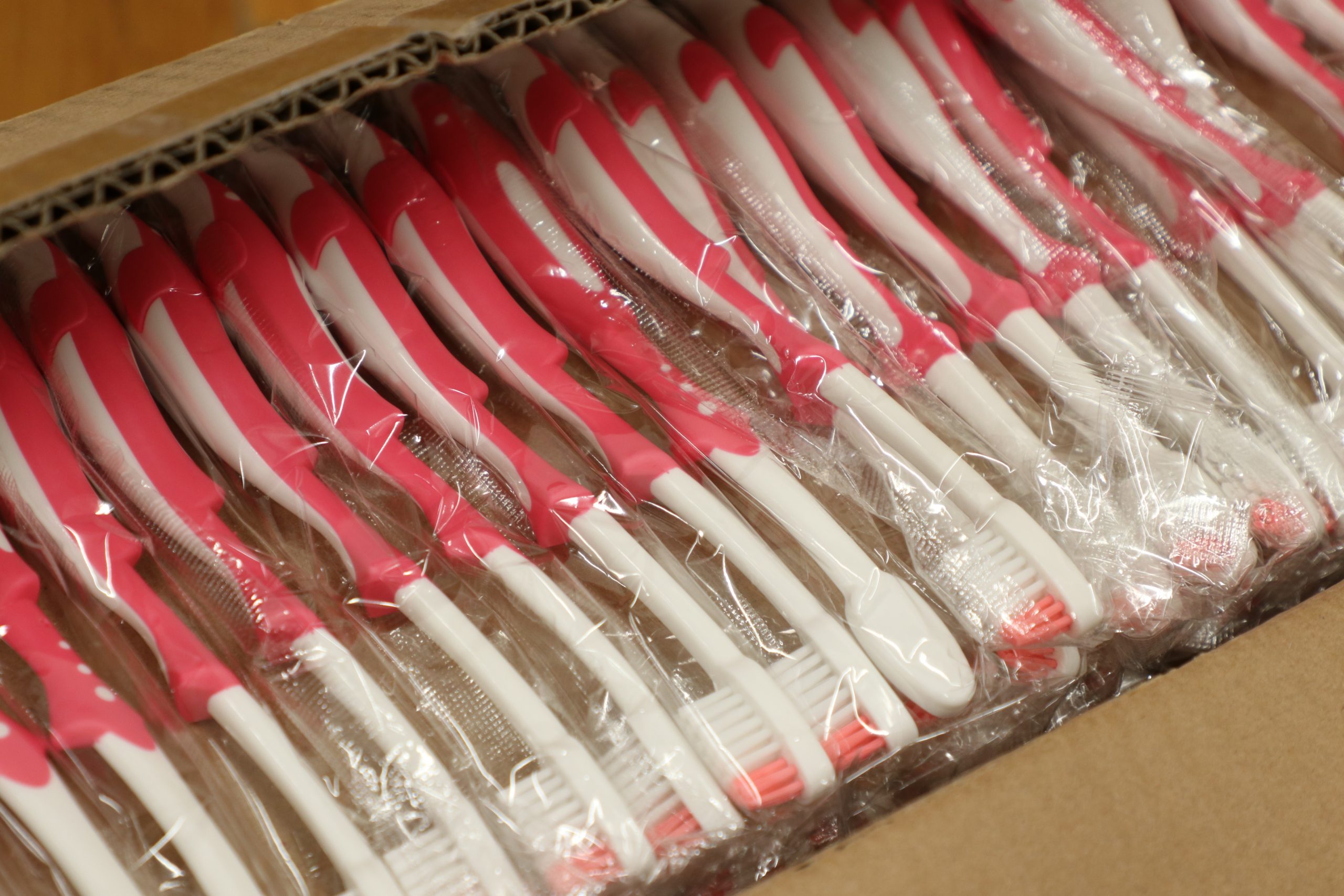
The American Academy of Pediatric Dentistry (AAPD) at Columbia University has donated over 600 toothbrushes with toothpaste to families at HFH. In addition to the donation, the AADP at Columbia U provided HFH with a virtual workshop on dental hygiene and oral care for children of all ages. Here are some important teeth tips for babies and children that the group shared with parents at HFH.
Teeth Tips for Babies and Toddlers (0-3 years)
Children’s first teeth begin to erupt between the ages of 6 and 12 months, and continue until they turn 3 years old. Parents and caregivers should begin caring for their children’s oral health care even before their first teeth erupt by using a clean wet towel to wipe babies’ lips, inside of cheeks, gums, and tongue after feeding.
Once teeth begin to erupt, parents and caregivers should brush children’s teeth twice a day. If the child is under age 3, parents and caregivers should use a small, soft toothbrush with a small amount of age-appropriate toothpaste, roughly the size of a grain of rice. Once the first teeth erupt, parents should also schedule their child’s first dentist to the dentist.
Cavity prevention also begins in early infancy. It is important that parents avoid putting a child to bed with a bottle or feeding them constantly, because this causes sugar to linger and cavities to form in children’s mouths. Parents should never put sweets on a baby’s pacifier and children over the age of 18 months should not use a pacifier at all.
Teeth Tips for Children (3 years+)
Children begin to lose their baby teeth (and grow permanent teeth) at around 6-7 years old. At around the age of 12-13, most children will have lost most of their baby teeth, with the exception of their third molars or wisdom teeth.
Children and adults should brush their teeth twice a day, especially before bed. Children should use children’s toothpaste until they are old enough to spit out all toothpaste and not swallow it. Children should visit the dentist at least twice a year.
A balanced diet can prevent cavities and promote healthy tooth development and gums. A dentist may also place sealants on children’s molars to reduce the risk of cavities.
